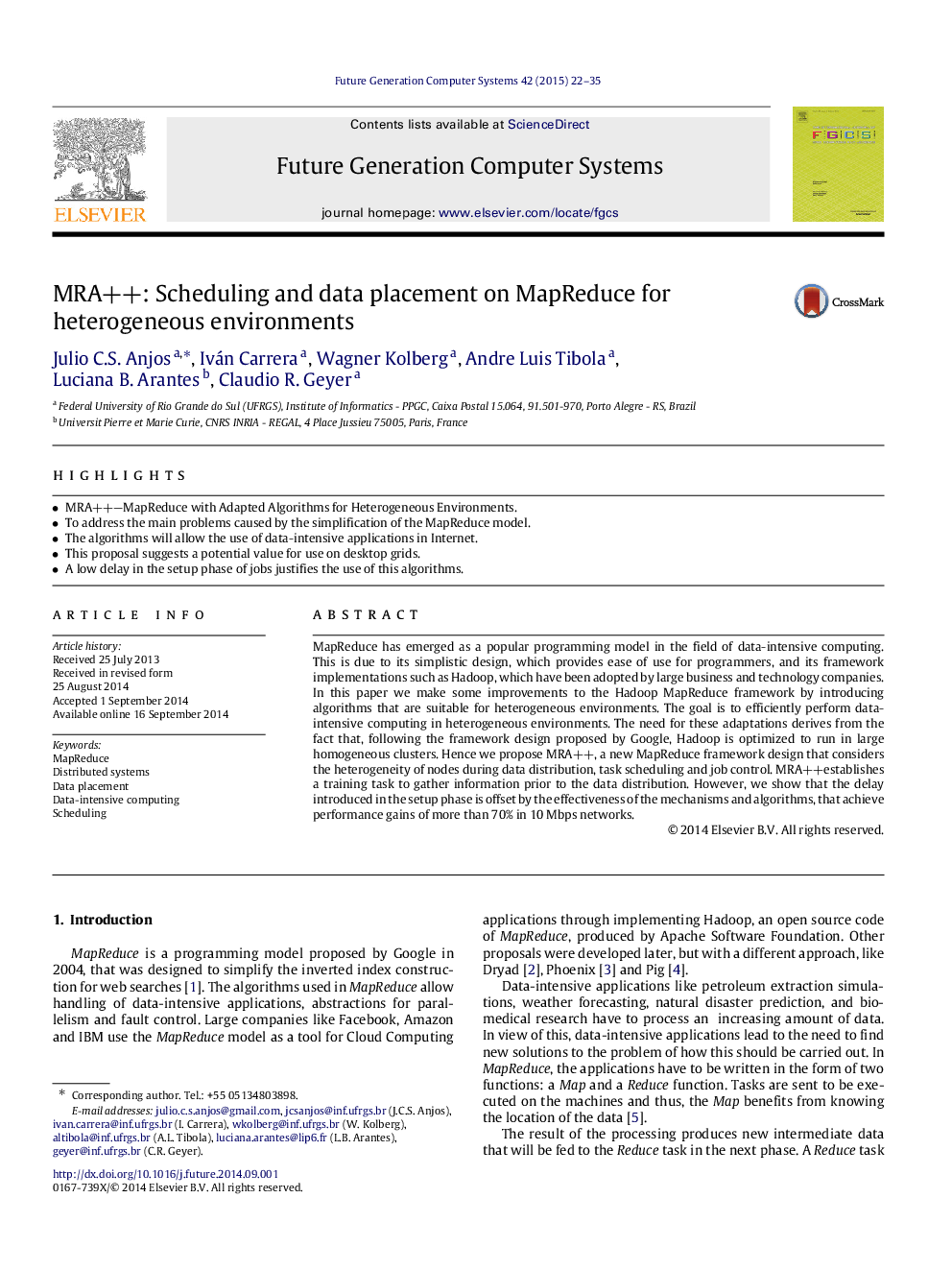| Article ID | Journal | Published Year | Pages | File Type |
|---|---|---|---|---|
| 425650 | Future Generation Computer Systems | 2015 | 14 Pages |
•MRA++—MapReduce with Adapted Algorithms for Heterogeneous Environments.•To address the main problems caused by the simplification of the MapReduce model.•The algorithms will allow the use of data-intensive applications in Internet.•This proposal suggests a potential value for use on desktop grids.•A low delay in the setup phase of jobs justifies the use of this algorithms.
MapReduce has emerged as a popular programming model in the field of data-intensive computing. This is due to its simplistic design, which provides ease of use for programmers, and its framework implementations such as Hadoop, which have been adopted by large business and technology companies. In this paper we make some improvements to the Hadoop MapReduce framework by introducing algorithms that are suitable for heterogeneous environments. The goal is to efficiently perform data-intensive computing in heterogeneous environments. The need for these adaptations derives from the fact that, following the framework design proposed by Google, Hadoop is optimized to run in large homogeneous clusters. Hence we propose MRA++, a new MapReduce framework design that considers the heterogeneity of nodes during data distribution, task scheduling and job control. MRA++establishes a training task to gather information prior to the data distribution. However, we show that the delay introduced in the setup phase is offset by the effectiveness of the mechanisms and algorithms, that achieve performance gains of more than 70% in 10 Mbps networks.
